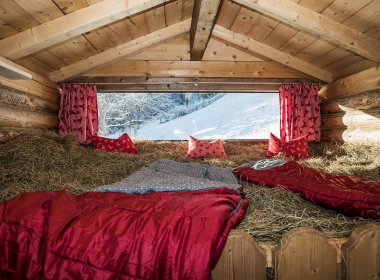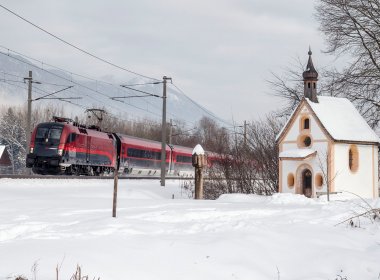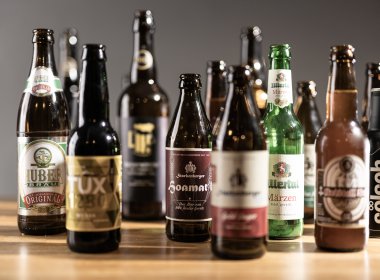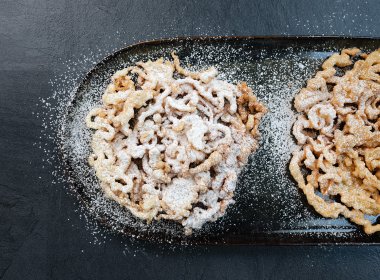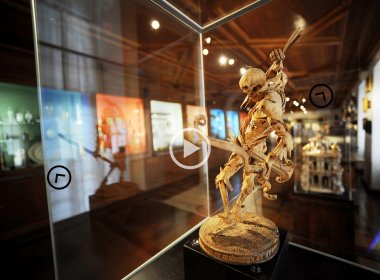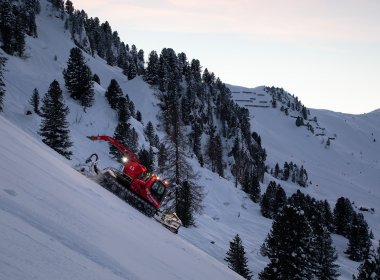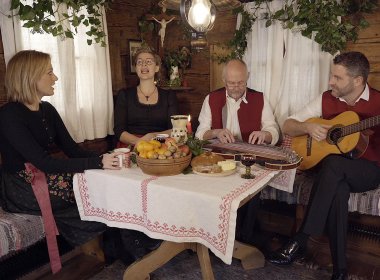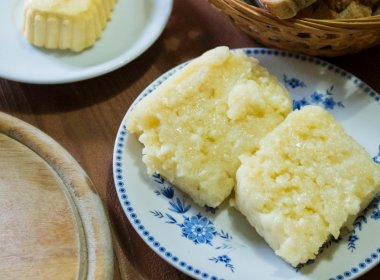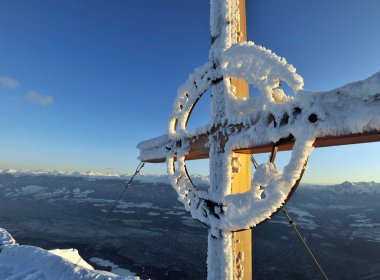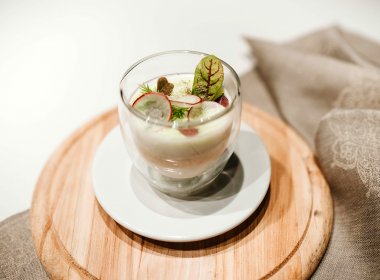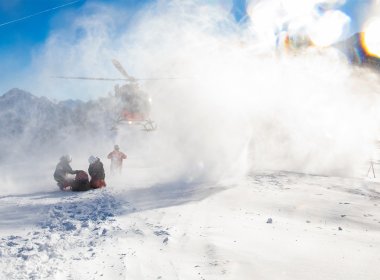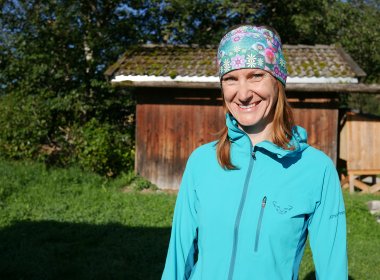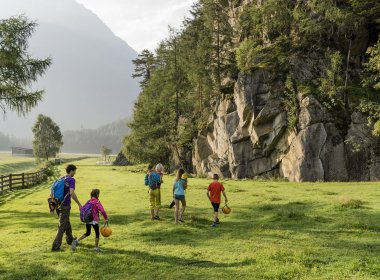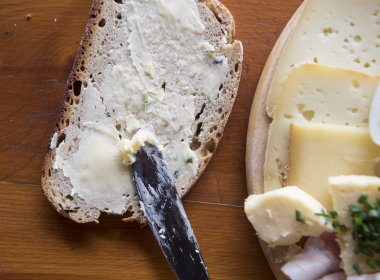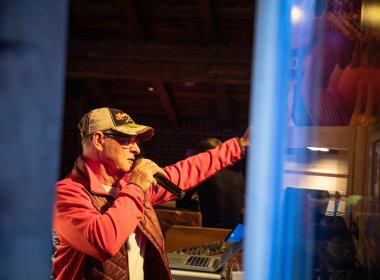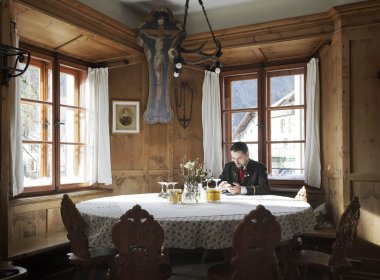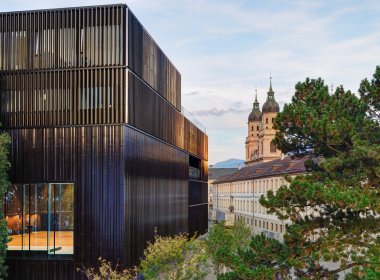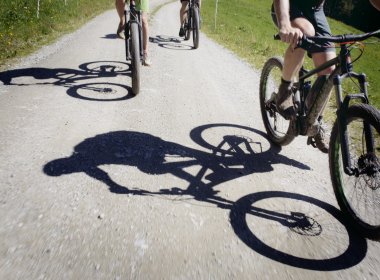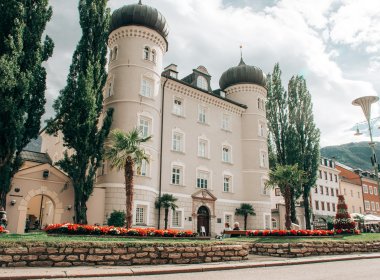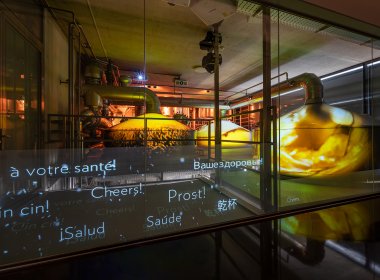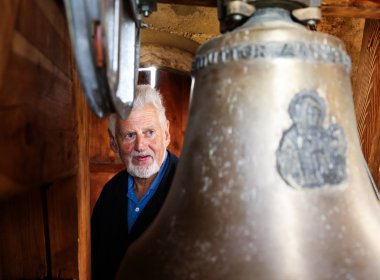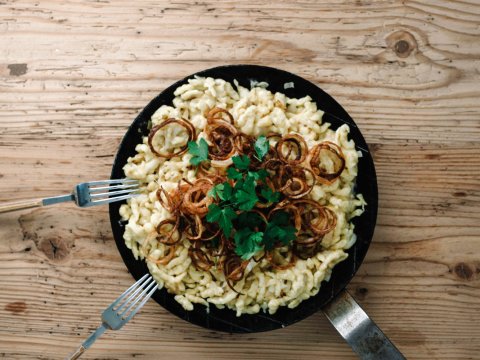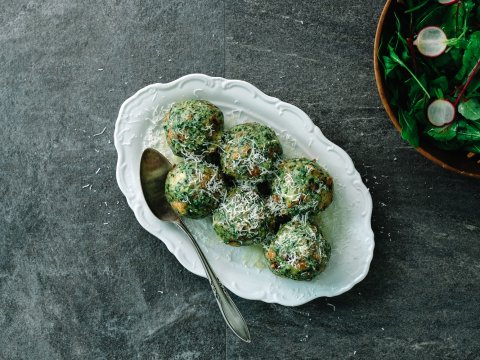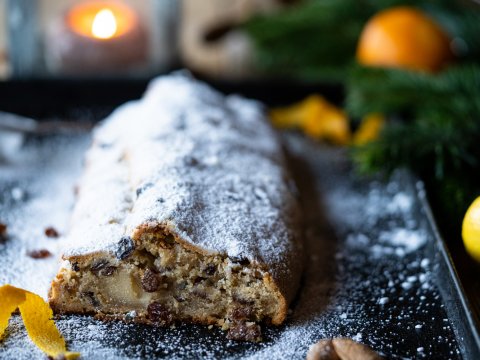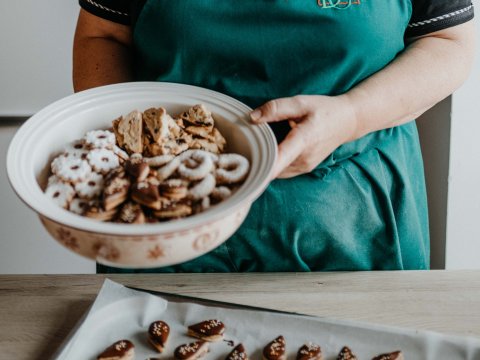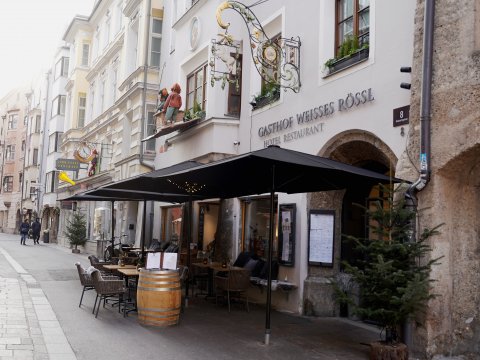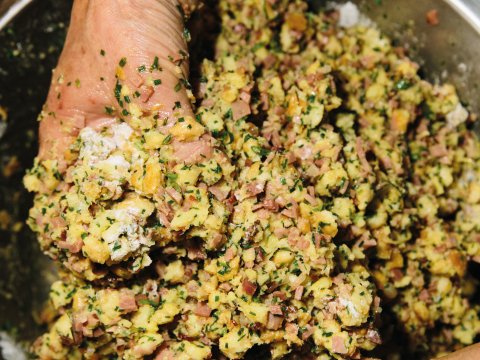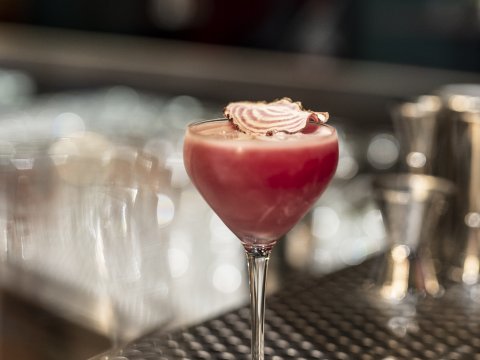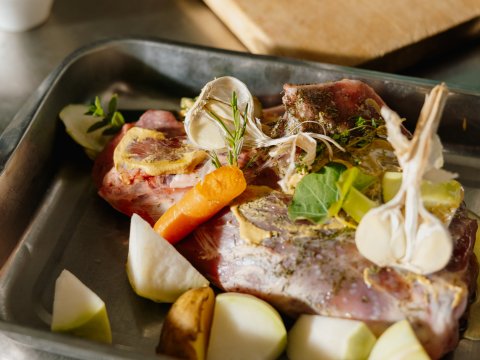Wine from Tirol: when vines begin to climb
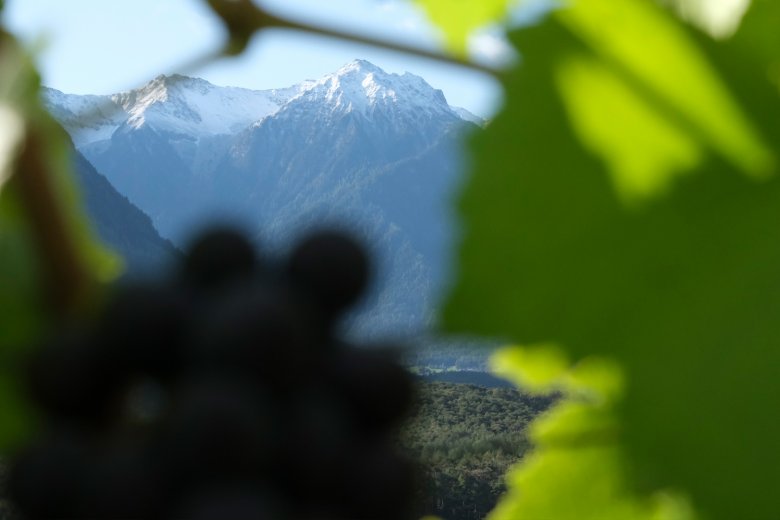
Snip. The good ones go into the pot, the bad ones go into the crop. “If you are not sure, then taste the grape. If it has a vinegary taste, then throw it away,” Peter Zoller explains. It is my first grape harvest and I am snipping myself through the vineyard of the Tirolean wine pioneer. Snip. You can already see some snow on the peaks of the Ötztal Alps and there is a feeling of autumn in the air.
On this sunny October day, it is time to cut the Pinot Noir grapes. The vine is full of plump and sweet grapes ready to be picked. In North Tirol the harvest starts a lot later than in Eastern Austria or South Tirol. My colleagues are all volunteers from the region, whose remuneration will be a bottle of Chardonnay and a typical Austrian snack. Tirolean wine is much sought-after.
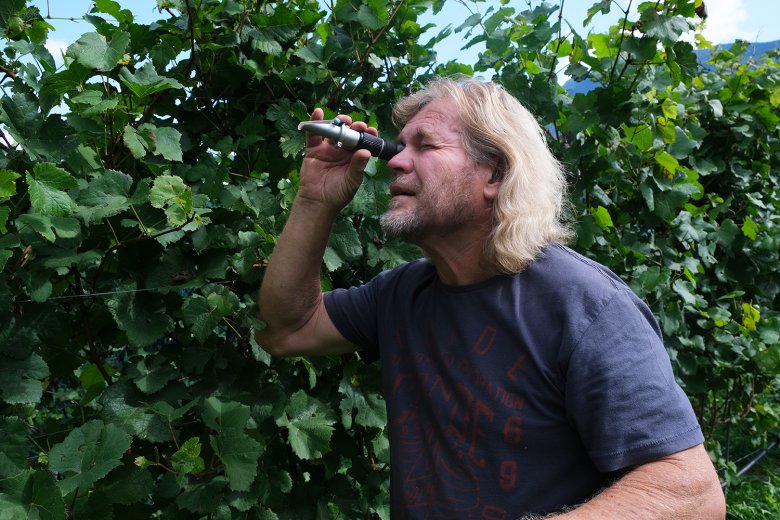
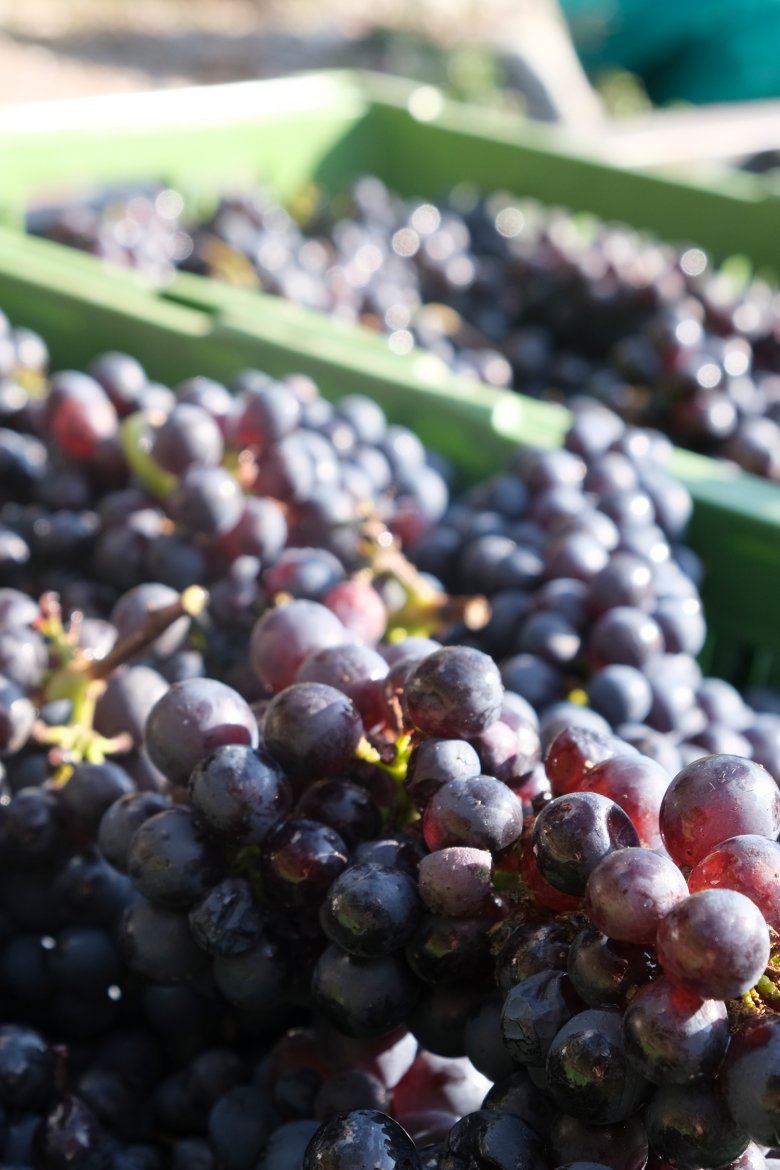
The mountain keeps the grapevines warm
“We are situated directly below the Tschirgant massif. During the day, the rock heats up and stores the heat. During the night it functions like an oven, keeping the grapevines warm,” Peter Zoller explains. Back in 1997, the retired teacher was one of the first to press wine in North Tirol. “Of course I was not taken seriously at first,” the Alpine vine grower says. Viticulture in the middle of the Alps – for many unbelievable because of the altitude, mountains and cold.
The calcareous soil the multiple hours of sun in Haiming , however, offer perfect conditions. “At first it was just a trial with a few vines around our house. But the trial worked and kept on growing,” Elisabeth Saumwald remembers vividly. Today, Peter and Elisabeth fill 5,000 bottles of quality wine each year. The white wine of the vine-growing couple is now an award-winning wine, and this has turned sneer into respect.
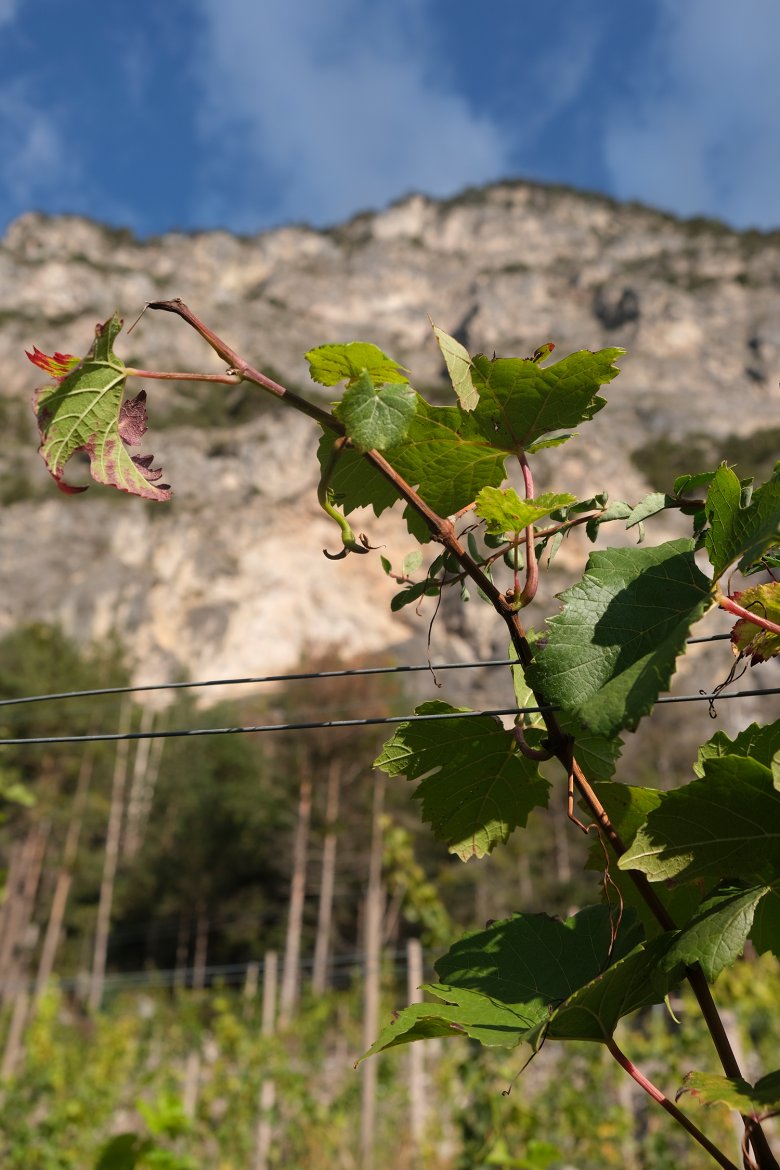
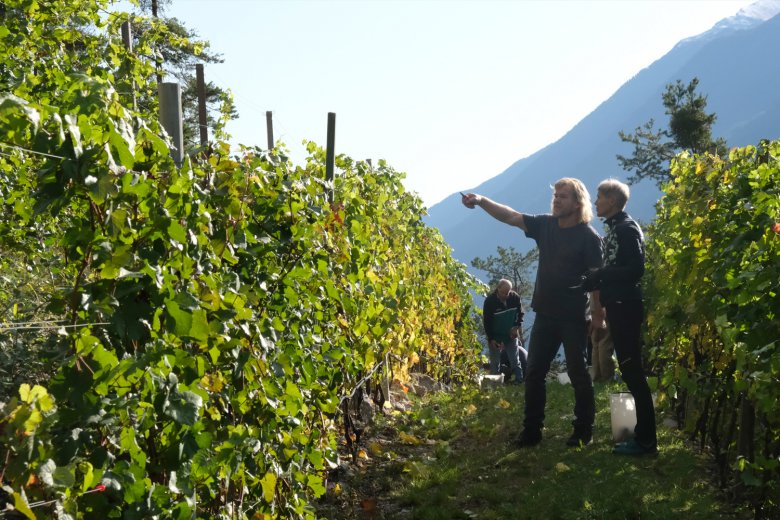
The rebirth of Tirolean viticulture
Peter’s pioneering spirit has a historic background. Up until the 16th century, vine stocks were very common in North Tirol. Emperor Maximilian promoted winegrowing between Landeck and Kitzbühel. Not least because his soldiers used to receive a ratio of wine. However, then the “Little Ice Age” led to a cooler climate in the Alps, and the commercial cultivation died out.
“Climate change has been an advantage for us,” the Alpine vine grower explains. Peter’s grapevines blossom earlier each year and the growing season is becoming longer. “That means that we can reach higher sugar levels in the grapes, which leads to better quality,” he explains. Over the last 20 years, viticulture has been experiencing a rebirth in Tirol. Especially the production of white wine has a promising future.
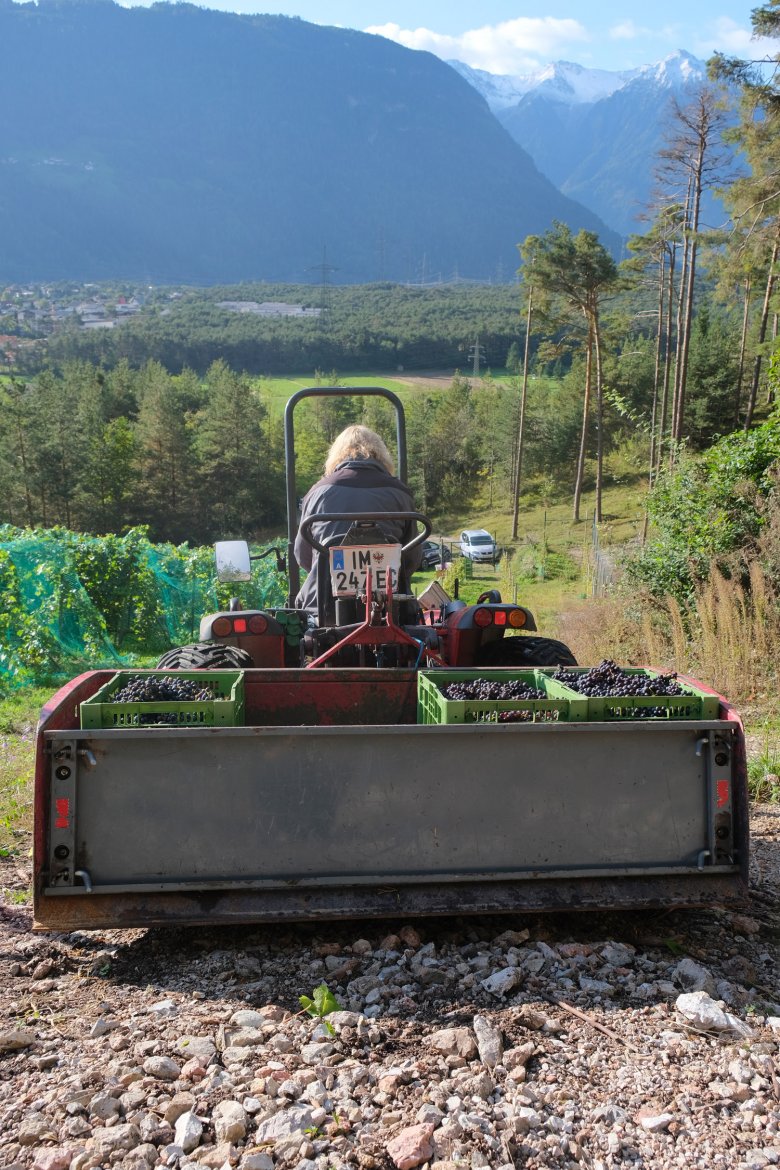
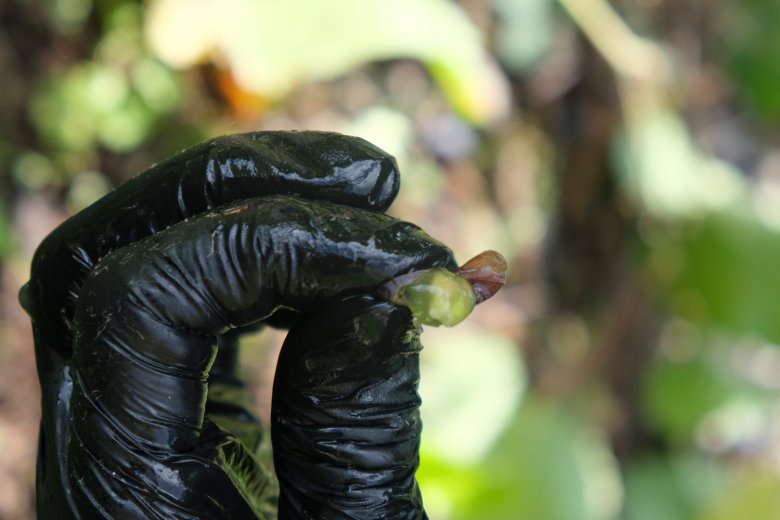
Austrian Quality Wine
According to the Austrian Wine Law, quality wine is not allowed to be sold until it has undergone an official inspection and has received an official Federal Inspection Number. The wine label must contain information about the origin, variety, vintage, and quality designation.
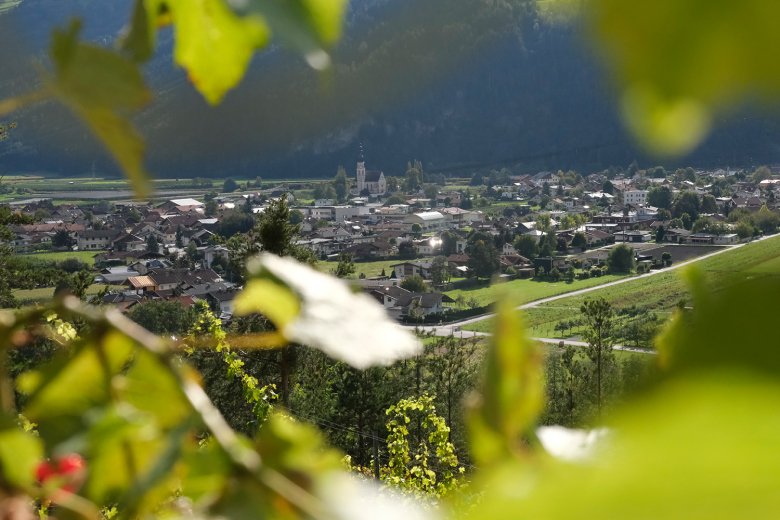
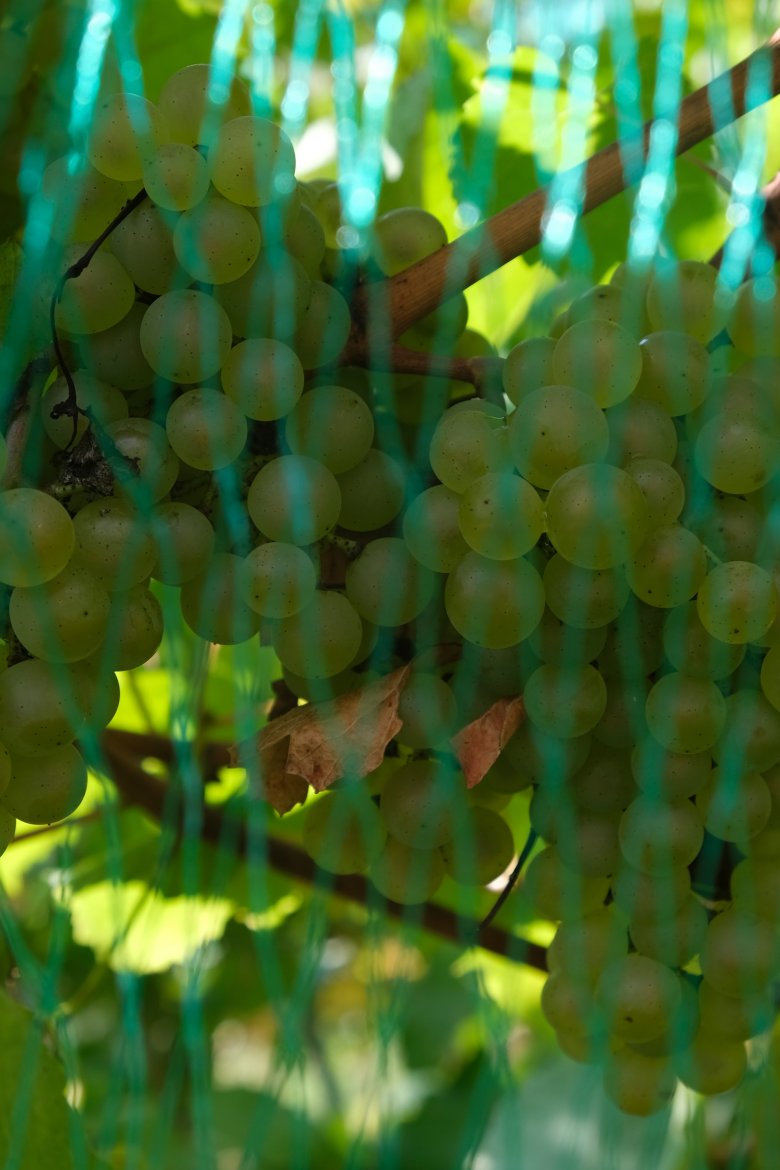
The Tirolean Viticulture Association
“We support each other, we don’t know the word envy,” Sieglinde Knabl says. She is one of Peter’s harvest helpers and also has her own little vineyard in a close-by village called Mieming. “When my husband passed away, he left me his vineyard. But I had no clue about winegrowing. I spent my nights watching YouTube videos about the topic and read everything I could find about winegrowing,” she explains. Just recently Sieglinde’s wine received the attribute “Austrian Quality Wine”.
More and more neo-vinegrowers are investing their time and money in their hobby, so Peter Zoller decided to found the Tirolean Viticulture Association. The 68 members have one thing in common: they are all striving after the highest quality. The association organises trainings and there is always an active exchange with vineyards in South Tirol and the eastern part of Austria. The Tirolean Viticulture Association even has a full-time vine grower: Georg Flür from Tarrenz.
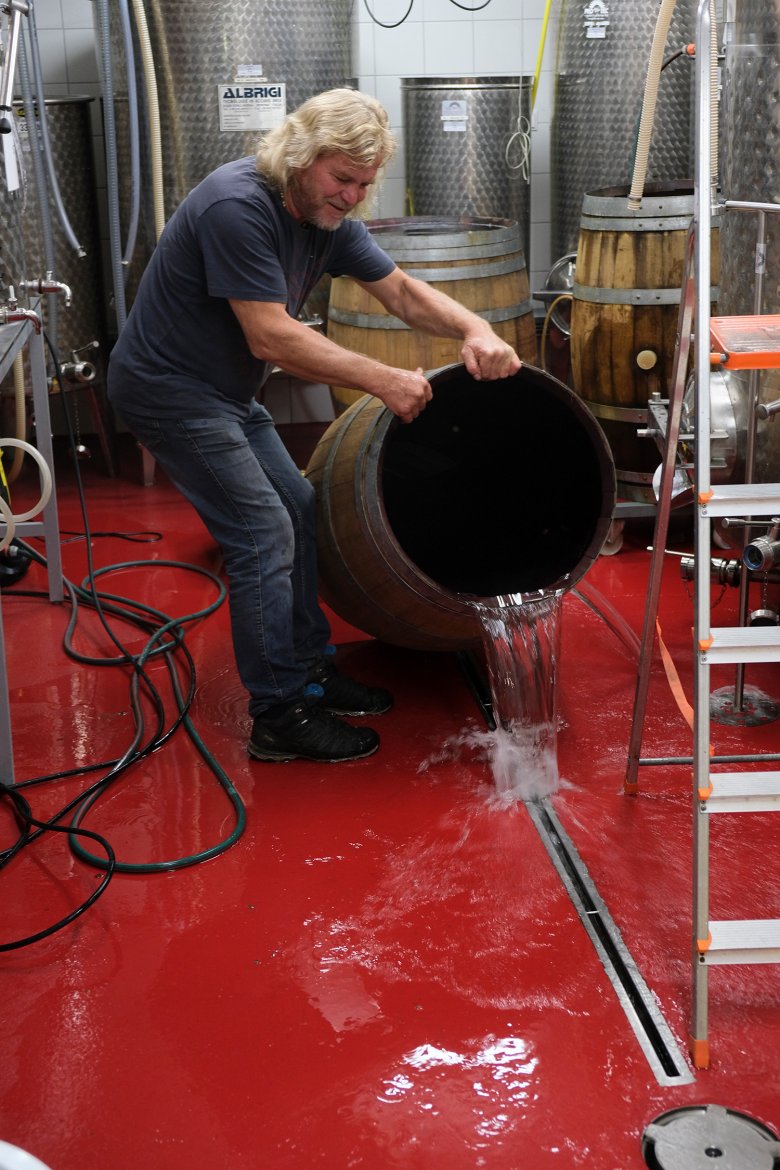
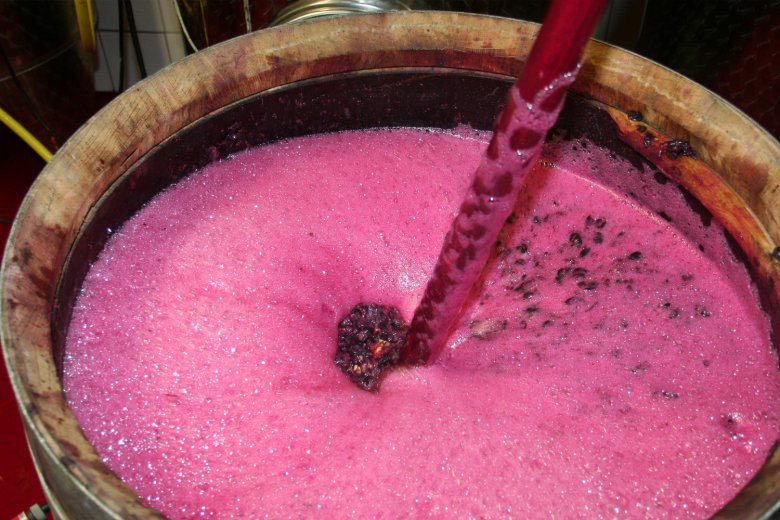
Exclusive niche product
Although they have grown and become very professional, the Tirolean winegrowers are still far away from being a direct competitor to the established wine-growing areas. “All of us together only just cultivate around 12 hectares, that is the equivalent of 17 football fields. In Lower Austria a medium-scale winemaker cultivates this size,” Peter Zoller explains with a smile.
However, Tirolean quality wine is a desired niche product in local restaurants. “In my restaurant this wine is sold like hot cakes. When I offer wine from North Tirol to my guests, I always receive positive reactions,” Hannes Neurauther says. The sommelier manages the restaurant “Orangerie” in Stams and always makes sure he gets some bottles from the vineyard Zoller-Saumwald each year.
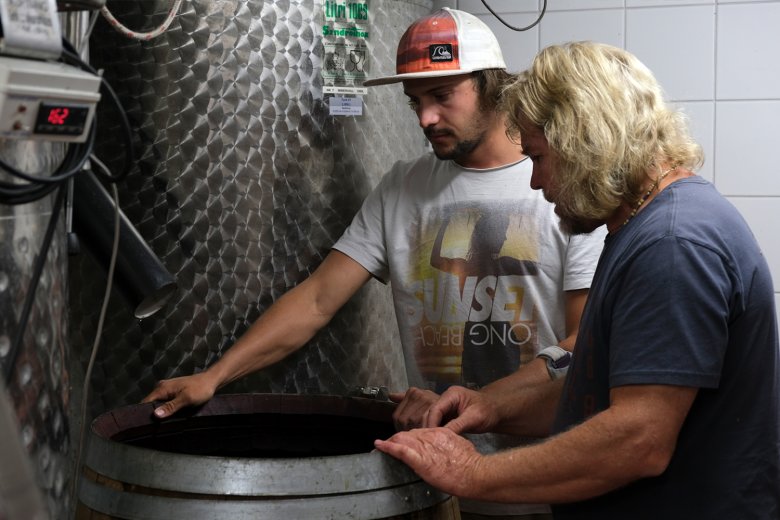
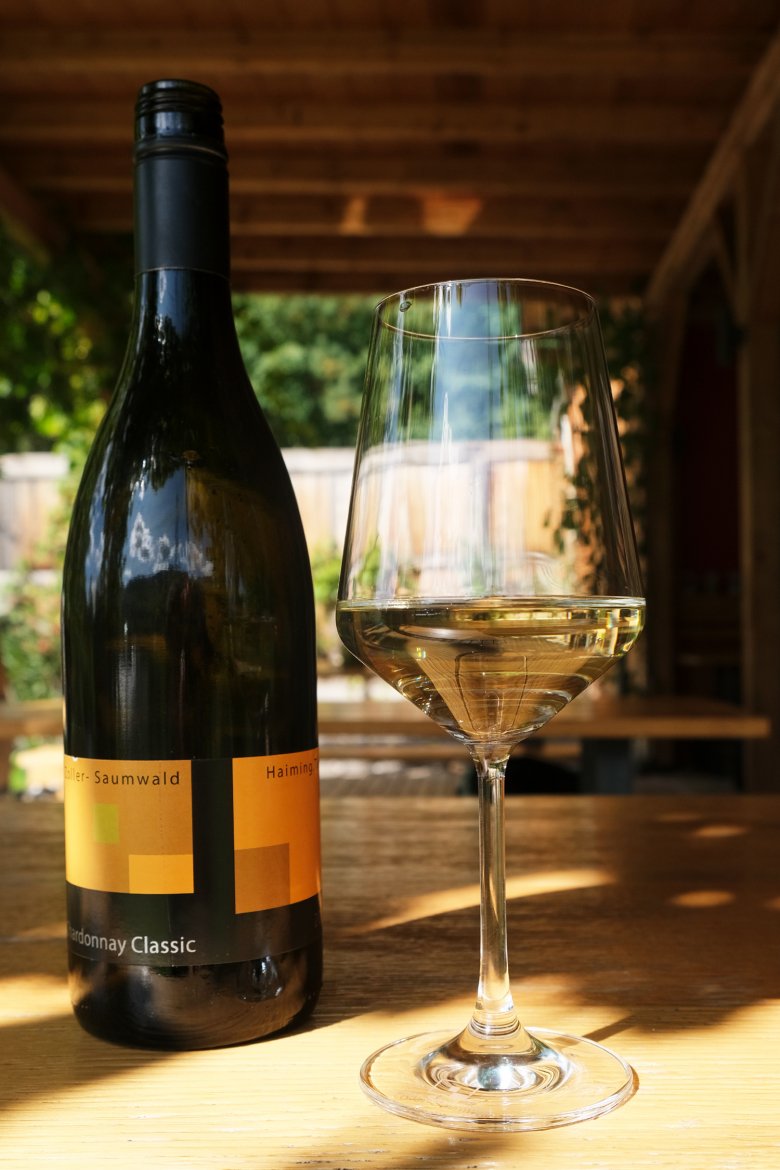
Passionate vine growers
“We will never be able to make points with quantity; however, we can score with quality and enthusiasm,” Elisabeth Saumwald says. They are not planning on expanding their vineyard; at the moment they can just cope with the workload thanks to the help of their family and friends. Elisabeth and her life partner share the deep passion for winemaking. “First the cultivation of the vines, then the care and finally the finished wine – you are part of every step. It is an amazing feeling when in the end you receive a quality product,” the vine grower explains.
Around lunchtime, Peter declares the grape harvest as finalised and calls everyone in for a well-deserved snack: pumpkin cream soup, cheese, speck and homemade bread. As the highlight of the day, vine grower Peter serves his harvest helpers a glass of Chardonnay from Haiming. It has a fresh and fruity taste, and smells like apples. This special wine is a rare drop. It was awarded as SALON wine and is now officially one of the best Austrian wines. “The demand for this wine far exceeds the supply,” Peter explains while pouring a glass of wine to everyone.












